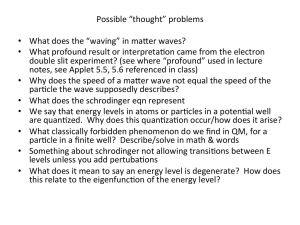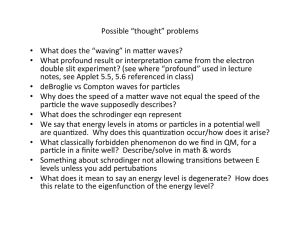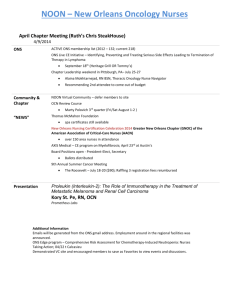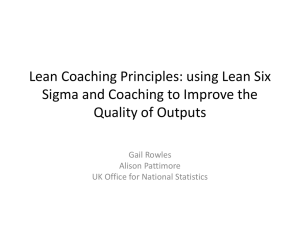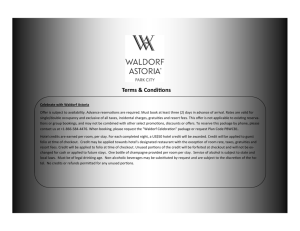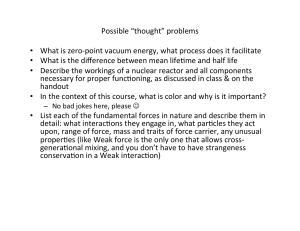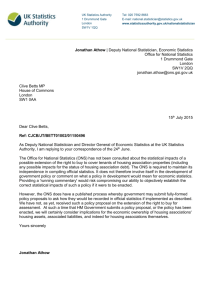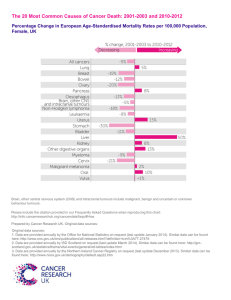Document 10550097
advertisement
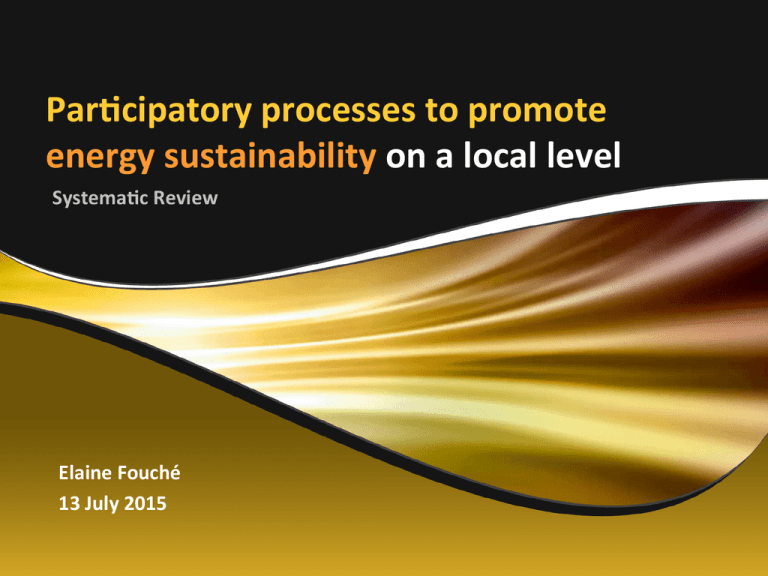
Par$cipatory processes to promote energy sustainability on a local level Systema$c Review Elaine Fouché 13 July 2015 Content Problem Why am I doing this research? Method How did I do it? Results What have I found? Conclusion What next? Why par>cipatory energy sustainability development? • • • • Eskom Municipal dilemma Complex energy systems Stakeholders percep>ons and believes Research methodology Systema$c literature review: Structured approach to review primary research in a transparent way. Research methodology (cont.) Primary research ques$on: Which structured par>cipatory processes have been applied, in the past seven years, to environmental management problems at a regional, city or community level? Secondary ques$ons: • What are the different approaches followed? • What are the advantages and limita>ons of these approaches? • Which factors do one need to take into account to ensure an effec>ve par>cipatory process are conducted? What have I found: Main theories Par$cipatory process A process where individuals, groups and organisa>ons choose to take an ac>ve role in making decisions that affect them. (Reed, 2008) Systems science A science that deals with hidden complexity, ambiquity and mental models in providing tools and techniques to unravel complexity. (Maani et al. 2007:2) Decision theory Deals with three approaches to decision-­‐making namely norma>ve, descrip>ve and prescrip>ve. RESULTS Selected studies as per applied sector Selected studies as per theory Systems Sciences 11% Climate change 22% Water manage-­‐ ment 45% Com-­‐ bined methods 18% Par>ci-­‐ pa>on 26% Sustain-­‐ able develop-­‐ ment 18% Decision-­‐ sciences 42% Energy 15% Risk Managem ent 3% Decision sciences: MCDA Mechanisms to select the best alterna>ve from a number of feasible alterna>ves under the presence of mul>ple choices, criteria and priori>es. Main advantages: • Can guide stakeholders to find and agree on sustainable solu>ons • “MCAs greatest strenght lies in its ability to integrate norma>ve judgements (stakeholder opinions) and technicl exper>se (e.g. quan>ta>ve data)” Buchholtz et al. (2009) Limita$ons: • Difficult to establish the boundaries of stakeholder par>cipa>on. • Difficult to aggregate different interests. Decision sciences: Scenario planning Method of exploring plausible alterna>ve futures in order to provide assistance in the face of uncertain and vola>le futures (Susskind, 2010:227). Main advantages: • Way to think about and explore future plausible futures. • Offers a roadmap with checkpoints. • Opportunity to change people's knowledge, percep>ons and subsequent decisions. Limita$ons: • Time consuming process; • Cogni>ve challenging; and • Does not necessarily result in a decision. Systems thinking and system dynamic modelling A paradigm of seeing things holis>cally and interconnected. Main advantages: • Allows stakeholders to discuss percep>ons and values; • Integrated model; and • The model is easy to engage with in order to test and discuss scenarios. Limita$ons: • Method does not reflect why and how to make a decision; • The model mainly focuses on "broad scale behaviour paferns” Mixed method approaches To overcome the limita>ons of the methods discussed. Types of approaches: • Integra>on of adap>ve governance with par>cipatory mul> criteria methods (Munarefo; 2014). • Par>cipatory processes combined with systems thinking and scenario building (Pidgeon et al.) • GIS combined with MCDA. • Stakeholder surveys combined with scenario analyses and simula>on modelling Challenges: • To keep a whole system view and to avoid reduc>onism; • To ensure that the right informa>on and framings are used; • To open and maintain delibera>ve spaces with diverse publics. • To access broader values. Now what? Factors for success 1. Method selected should handle a broad range of social, economic and environmental goals; 2. A holis>c approach is key in facilita>ng solu>ons w.r.t. sustainable development. 3. The selec>on of the relevant stakeholders are crucial for success. 4. The discussions are more valuable than the method chosen 5. Communicate the informa>on and knowledge within a social context. 6. Take into account Reed's best prac>ces for par>cipatory processes Ques>ons?
